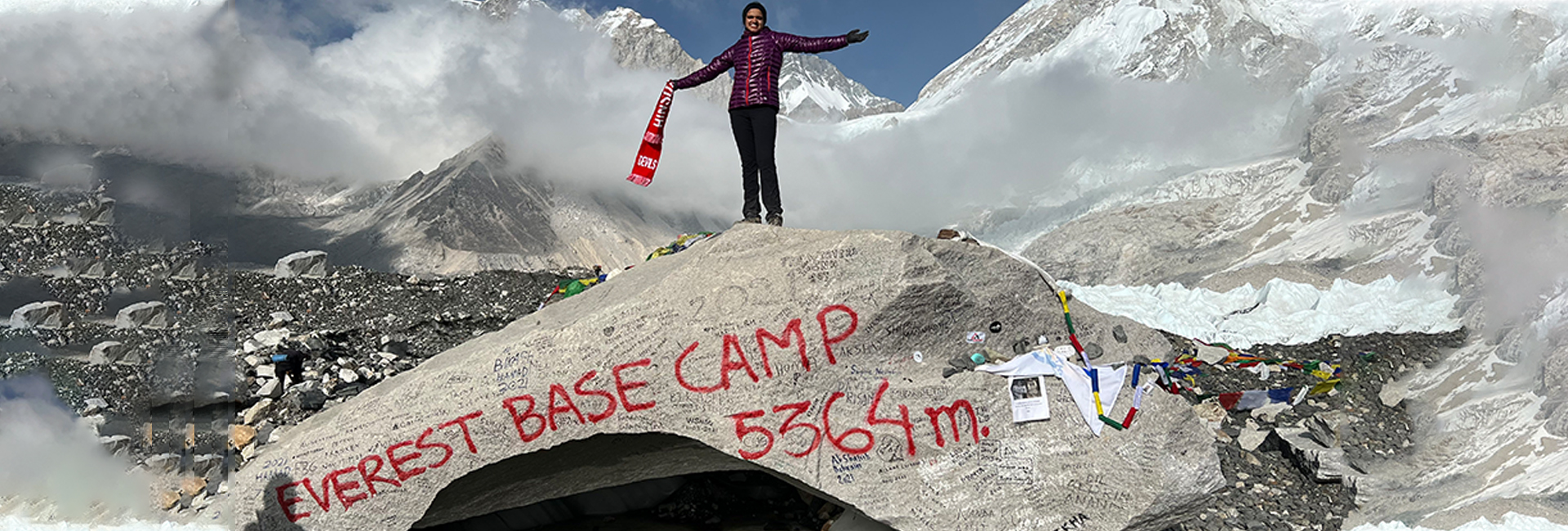(April 13, 2024) “Are there any fishes in the water?” or “What’s the depth of the water” were some of the questions that a curious 9-year-old scuba diver and eco-crusader Tharaagai Aarathana asked her father Aravind Tharunsri before starting to swim across the Palk Strait in the beautiful morning of April 3, 2024 at Talaimannar in Sri Lanka. Having waited out for 1.5 hours for the wind to calm down, she along with her dad and cousin Nishvik were ready to take the plunge in the calming water of the ocean. “I am comfortable with deep water, otherwise I get scared to jump into the water as you can touch the sea floor,” smiles Tharaagai as she connects with Global Indian.
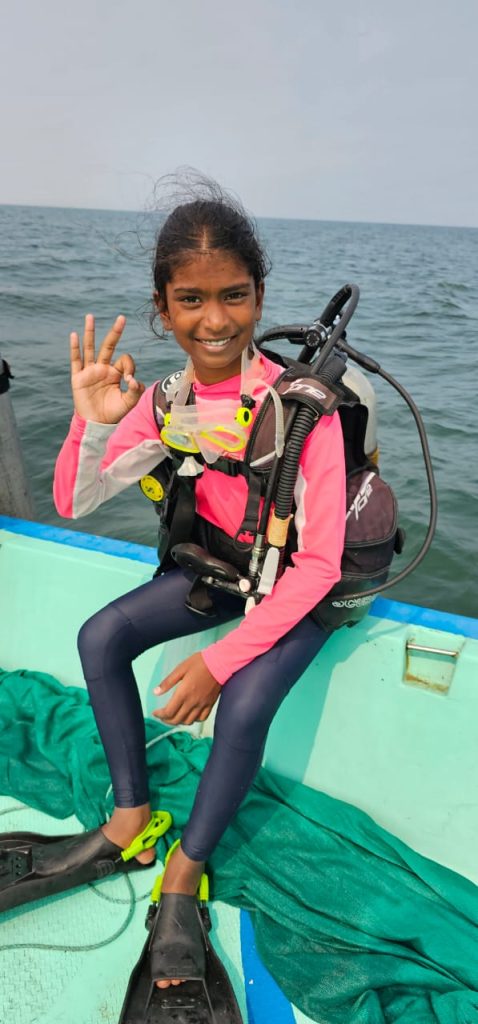
Swim across the Palk Strait
It’s the first time that a father-daughter duo has swam across the Palk Strait together, clocking an impressive time of 11 hours and 30 minutes and securing a place in Assist World Records. However, their motivation transcends mere record-breaking; their swim is for a bigger purpose – to raise awareness about ocean pollution and environment conservation. Tharaagai was only three when she began accompanying her father to weekly beach cleanups and soon learnt about ocean pollution, leading her to take charge as an eco-crusader. Even during the 30-km long stretch between Talaimannar in Sri Lanka and Dhanuskodi in Tamil Nadu, the trio remained committed to their cause, gathering 6 kgs of plastic waste. “Every piece of plastic we spotted floating on the ocean’s surface, we made sure to retrieve and stow away in the boat,” recalls Tharaagai.
Enduring nearly 12 hours in the water is no easy feat, especially for a nine-year-old who was accompanied by her seven-year-old cousin Nishvik. “I have been swimming since I was three. All these years of water adaptation have helped me stay put for a very long time. With each challenge, I push outside my comfort zone and that’s what I did with the Palk Strait swim too. At times, we have to face strong currents or daunting waves but we adapt to the challenges and face them,” smiles the eco-crusader.
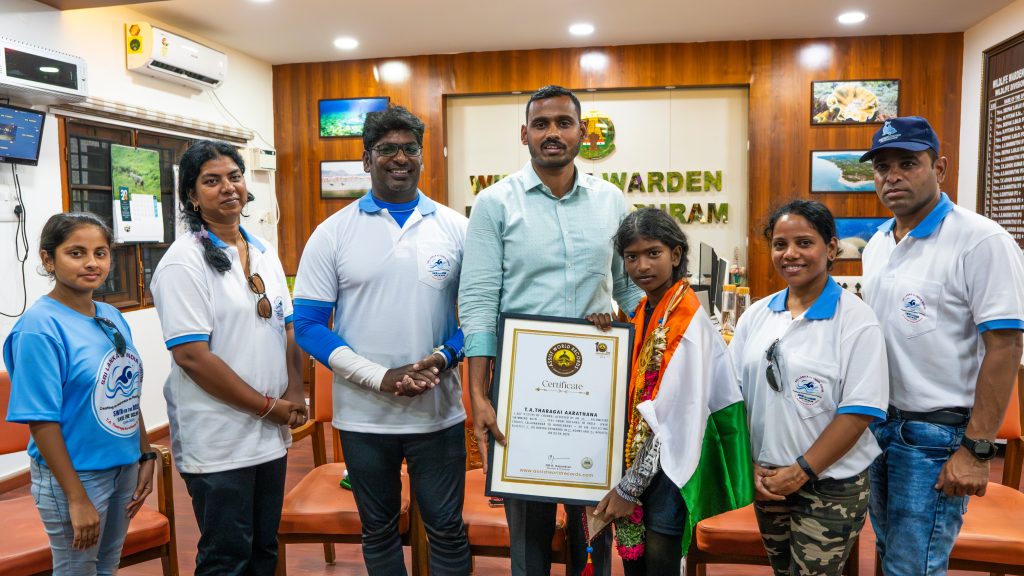

The 30-km swim
The journey began from Dhanuskodi after getting clearance from both the Indian and Sri Lankan governments. “We boarded a mother boat in the afternoon of April 2 to reach Talaimannar in four hours. The big boat provides essential amenities like beds, food, and restroom facilities. It also carries the support crew consisting of doctors, physiotherapists, and their assistants, two support swimmers, and a kayak,” reveals Aravind, who is a scuba diving instructor. To ensure their safety, they were accompanied by a mother boat, a rescue boat, a backup boat, and a kayak.
Starting in the wee hours of April 3, Aravind, Tharaagai, and Nishvik, who were waiting for the weather to clear out, braced themselves for a long day ahead. “It’s a non-stop journey without any breaks,” explains Aravind, adding, “You can drink water or eat a banana or dates or nuts from the accompanying kayak.” However, setting off before dawn had its perks as they had the opportunity to witness bioluminescence, (emission of light by living organisms), which captivated the two kids. “That’s one of the things we love about night swimming,” smiles the girl.
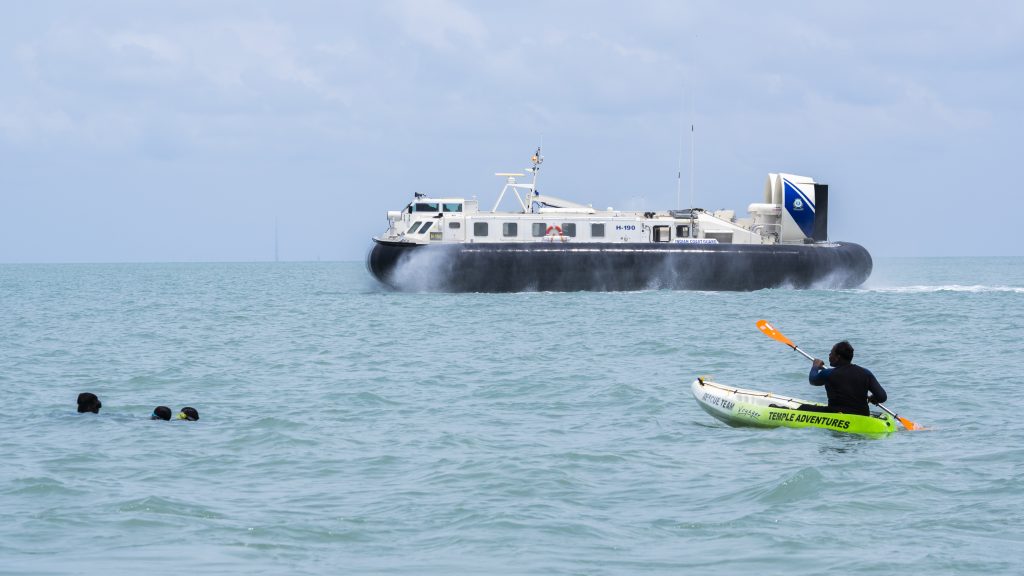

Swimming across the Palk Strait
Given their years of swimming experience, the duo didn’t undergo any special preparation for the 30km swim. “We have been constantly swimming and gymming – for stretching to avoid any cramps during swimming along with some cardio,” reveals Aravind for whom mental fortitude was equally important as he recognised the unpredictability of the ocean.
With decades of scuba diving experience under his belt, Aravind felt relatively prepared for the challenges. “Throughout the swim, I kept the kids motivated by engaging in small talk or plays so that they don’t fell the fatigue. I kept them distracted so that they dwell on how far is the finishing line,” he laughs. However, the final four hours proved to be the most challenging as they had to swim against the current. “If we stop swimming, the current would push us back. So, we kept moving forward despite the strong current,” adds Tharaagai, who was welcomed by a cheering crowd at Dhanuskodi.
Swim for a cause
Aravind calls himself “a proud father” seeing his daughter create an impact as an eco-crusader. “Till now, she has collected 2000 kg of plastic waste from ocean and beaches,” beams Aravind, adding, “More kids are getting inspired and joining us for future adventures to create awareness. The idea is that if my daughter can do it, everyone can do it.” Aravind firmly believes that the future generation has the power to create change. “If we ask the government to stop manufacturing plastic bottles, it won’t happen. But these young kids are witnessing the harmful effects of single-use plastic on the environment. In the future, one of them would ascend to positions of influence – be it Chief Minister, Prime Minister, or Forest Officer. That’s when these efforts will truly matter,” says Aravind.
An eco-crusader
The Chennai girl’s love for water is a gift from her father who started adapting her to water when she was all of three days old. By the time, she was nine months old, she began floating and in the next two years, she was swimming like a pro. Her bond with water kept strengthening with each passing day, and at the age of five, she started training for scuba diving in shallow water.
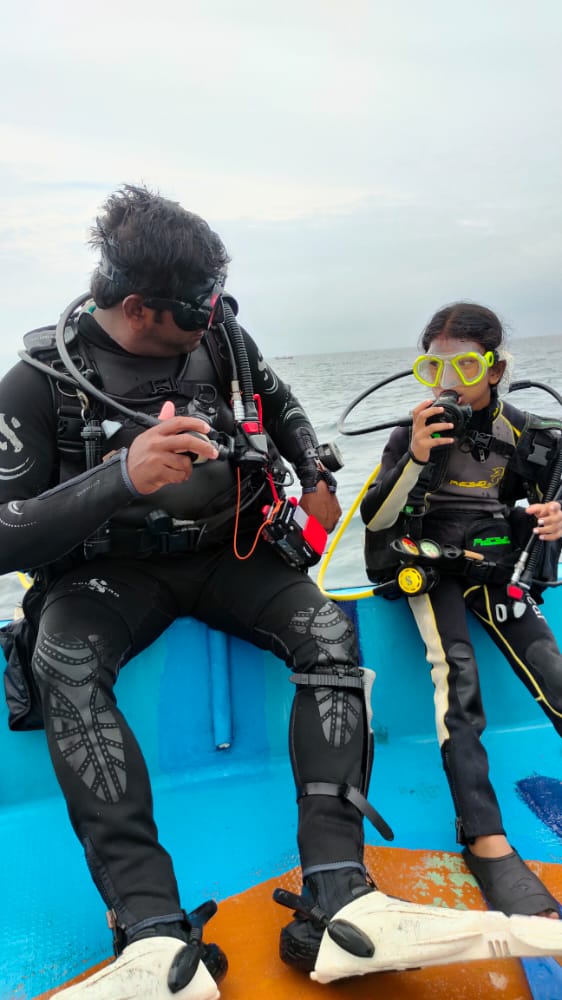

Aravind with daughter Tharaagai
Growing up near the sea made her aware of the marine pollution and the plastic menace on the beaches. At a young age, she understood “how plastic and abandoned nets were adding to the pollution and affecting marine life.” With some hand-holding by her father, she sat through awareness programs and training, absorbing every bit of information about endangered marine species, especially the Dugong (sea cow). “With 150 dugongs left in India, she decided to save them from plastic pollution. She is creating awareness among kids through presentations in various schools,” says Aravind, who founded South India’s first-ever scuba diving center Temple Adventures in Pondicherry in 2007.
His passion for protecting the environment has rubbed off on his daughter as the two are now working as a team of eco-crusaders. “Every week, we clean up the beaches and the ocean beds. I then segregate the plastic and send the one that can be upcycled to the recycling plant. While the other is taken care of by the government who dispose of it properly,” reveals Aravind.
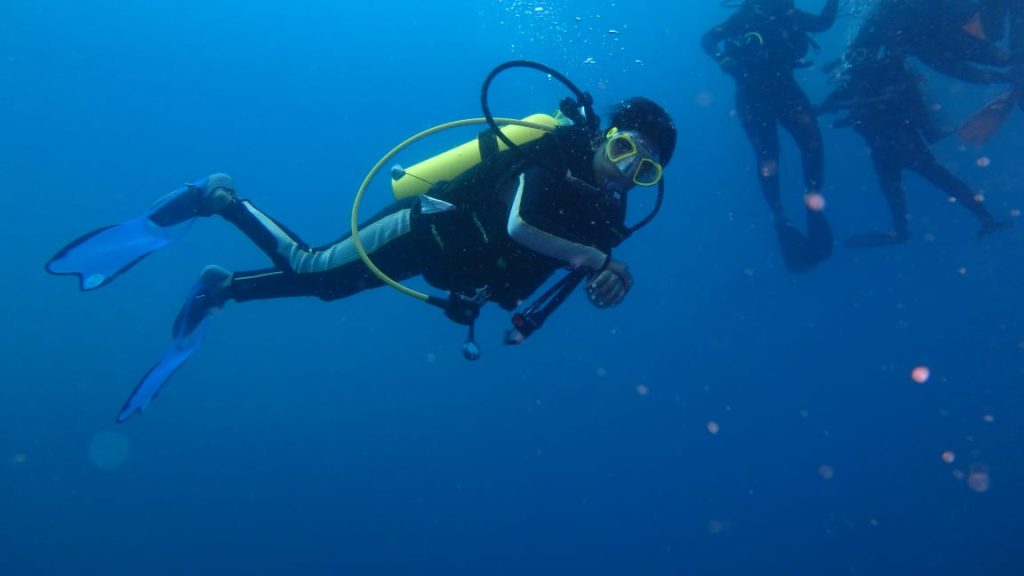

Tharaagai, who is being home-schooled, wants to be a scuba diver when she grows up. But the nine-year-old is currently enjoying her work as an eco-crusader and wants more kids to join hands. “I alone cannot clean marine plastic, everyone has to participate,” she signs off.
- Follow Aravind Tharunsri on Linkedin




